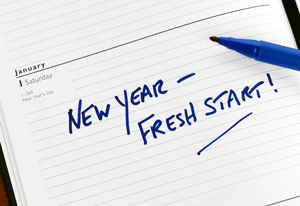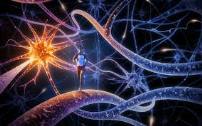Did you make a New Year’s resolution? Several?
Most resolutions to do better are about forming habits.
Recognize these?
- I must get physically fit
- I’ll lose weight
- I’ll quit smoking
And you will have made that resolution before!
Aristotle said:
‘We are what we repeatedly do. Excellence, then, is not an act, but a habit.’
So how can you change a bad habit once and for all?
Habits are the brain’s way of helping you to memorize and repeat things you do often. (Your brain can’t handle every detail of everything you do all day long – it would be overloaded!)
So you automatically switch on the light when entering a dark room, look both ways before crossing the road, or, unfortunately reach out for another cigarette or that tempting calorie-laden snack. See how habits work?
You can use that very same brain ability to decide upon and change to a new, positive and healthy habit.
In 1949, David Hebb made a landmark discovery:
Neurons that fire together wire together
When brain connections are active at the same moment over and over again, then they (the neurons) associate with one another and the connections become stronger. The more you practise the new habit, the stronger and more ingrained the pathways become.
You literally change your brain!
Every habit you want to develop has the same three stages:
- the reminder
- the routine
- and the reward
For example, you need to cross a busy road to the shop, you automatically look both ways and your reward is making it safely to the other side.
What are Reminders?
To develop the habit of going for a walk each morning, use something you already routinely do as your reminder: maybe finishing your morning coffee. Or create a reminder specifically for walking, such as putting your walking shoes by the door.
What’s the Routine?
The more often you put on the shoes and walk out of the door, the easier it will become.
And the Rewards?
You will be well rewarded by the sense of achievement, the smiles of others out walking, and enjoying the sights and sounds of the outdoors.
Your brain will soon start to anticipate the routine and before long you will find yourself not wanting to miss this important and pleasurable part of the day.
Tips for your new habits:
Ensure your new goal is pleasurable.
Don’t set out on your walk with the attitude that this feels like punishment for allowing yourself to become unfit!
Engage all of your senses in the experience.
Feel the sun and breeze, observe and really notice the environment, greet passers-by, be aware of the fragrance of flowers or the ocean, and listen to the sounds around you. As you engage your senses and really notice what is around you, responses are triggered in the brain that will form new, strong and vibrant neural pathways to reinforce your new, habit-forming determination.
Consistency is the key!
It is much better to take a 15 minute walk every day than to do an hour walk for a couple of days and then give up.
Remember, you are training your brain with your consistency. When a person learns to play a musical instrument and follows a regimen of practice, over time the music will appear fluid and effortless. The brain is very adaptive and flexible, but the change always depends on the amount of effort, time and consistency invested.
So it is with your new habit. The rewards are great and soon the new habit will be automatic, too.
Try it for yourself
It’s possible, it’s proven, and now it’s up to you.
See also: https://www.brainfit.world/2016/02/24/how-brain-learns/ , https://www.brainfit.world/2016/01/29/memory-traces/



